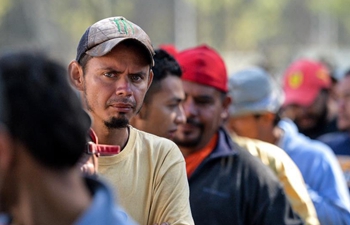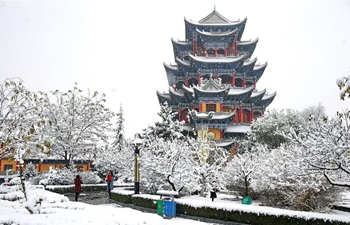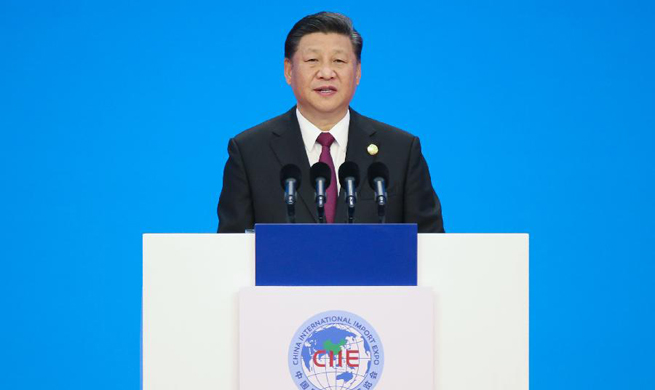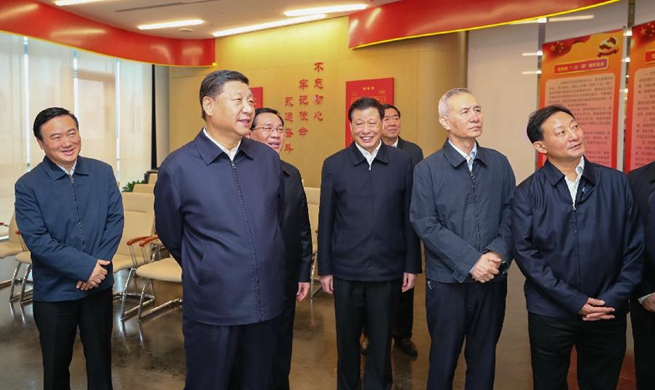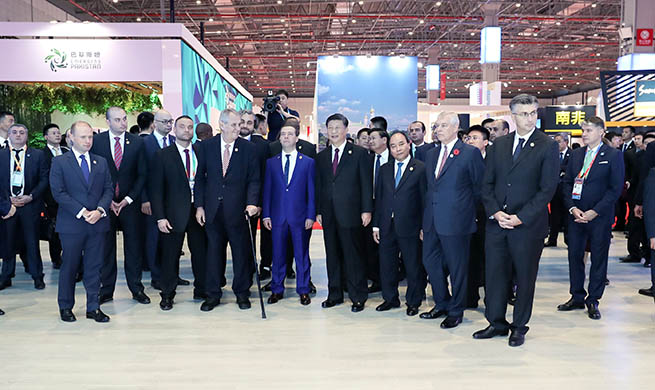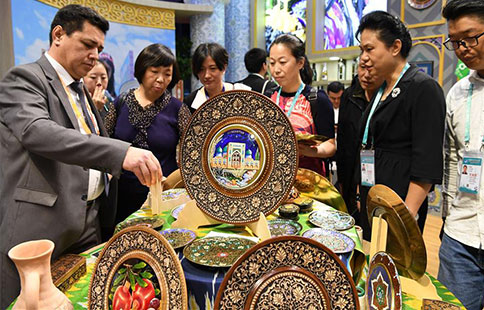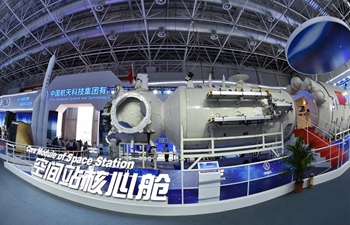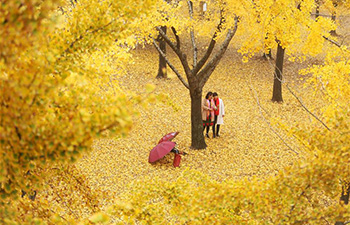by Xinhua writers Xu Feng, Gao Lu
NEW YORK/HOUSTON, Nov. 6 (Xinhua) -- With an expected spending of 5.2 billion U.S. dollars, the 2018 midterm elections are the most expensive in U.S. history, which leaves many wondering if democracy should always come with such a hefty price tag.
The Center for Responsive Politics predicted last week that more than 5.2 billion dollars will be spent in this election cycle, making it "the most expensive midterm election ever by a wide margin." This would indicate a 35-percent increase over the 2014 midterms, and break the previous record of 4.1 billion dollars in the 2016 congressional race.
Estimates for TV and radio ad spending are around 3.27 billion dollars, doubling the 1.5 billion spent on the 2014 midterm contests, according to ad-spending data from Advertising Analytics.
The lavish spending is driven by successful fundraising from both parties, in particular the Democrats. Democratic candidates for the House and Senate have raised a combined total of 1.46 billion dollars, dwarfing the 1 billion dollars for Republicans, according to data from the Center for Responsive Politics on Tuesday, the election day.
SMALL DONATION, BIG DIFFERENCE
While billionaires, as usual, continued to funnel huge amount of money to super PACs (political action committees) to wield influence over the two parties, it is small donations, especially from women, that have set 2018 midterms apart, at least in terms of fundraising.
Beto O'Rourke, the Democrat running against Republican Senator Ted Cruz in the southern U.S. state of Texas, broke Senate fundraising record, raising 38.1 million dollars in the third quarter from more than 800,000 people, the O'Rourke campaign said. O'Rourke raised nearly 70 million dollars in this cycle thanks to small donors, significantly higher than Cruz's 40 million.
ActBlue, the widely-used democratic fundraising hub, told news media Axios that 61 percent of donors for the 2018 midterm race are women, up from 54 percent in 2016. The streamlined online portal raised more than 1.5 billion dollars, double the amount in 2016.
Paul Allen, a 67-year-old retired U.S. Postal Service employee, told Xinhua at a polling station in New York City on Tuesday that for the midterms he donated 100 dollars to the National Action Network, one of the leading civil rights group.
Kate Shine, a 30-year-old writer and comedian who identified herself as an independent, told Xinhua at the same polling station that she made small donations to support several candidates including Democratic Senator Kristen Gillibrand, though she declined to disclose the exact amount of contributions.
Shine said her participation in the "important election" is driven by her observation that politicians in power today are not representing people's interests, citing the controversial nomination and approval of Supreme Court Justice Brett Kavanaugh.
AN ERA SANS DONATION CAP
The upsurge of small donations is, to a degree, only a reaction and counterweight to billionaire donations and their outsized influence on the PAC-driven campaigns, which set no limit to political donations thanks to the rulings of the Supreme Court.
In 2014, the Supreme Court struck down limits on election spending, echoing its 2010 decision on Citizens United. The apex court said campaign expenditure caps were unconstitutional since they placed "substantial and direct restrictions" on protected political expression.
Mega-donors continued to spend big in this cycle. Reports showed conservative casino billionaire Sheldon Adelson and his wife Miriam donated more than 110 million dollars to super PACs supporting Republicans. Michael Bloomberg, the billionaire former mayor of New York City, gave more than 40 million dollars to super PACs supporting Democrats.
"Economic elites and organized groups representing business interests have substantial independent impacts on U.S. government policy, while mass-based interest groups and average citizens have little or no independent influence," political scientists Martin Gilens of Princeton and Benjamin I. Page of Northwestern concluded in their influential 2014 study after examining thousands of U.S. policies.
Take gun control as an example. In the wake of multiple mass shootings in recent years, the majority of Americans are now in favor of stricter gun control, but the National Rifle Association, through its huge political spending, has repeatedly swayed the decision of Congress to its own favor.
The majority of voters interviewed by Xinhua during the election day expressed frustration with the unmatched influence of corporate cash and the record spending of the 2018 midterms.
"The Supreme Court ruling on election spending opened the floodgates. A lot of interest groups are pouring more and more money into this and we are living in a more money-driven society. It's just a natural consequence of that," 55-year-old physician Michael Bommarito told Xinhua in Chicago.
"I would want to see the election of more candidates like Alexandria Ocasio-Cortez who represent people out there working hard everyday, not candidates that have the most money behind them," Shine said.
"Elections should be on merit and character, not money," Allen said.
"VIRUS" THAT INFECTS BOTH PARTIES
The public have long bemoaned that politicians are spending too much of their time chasing campaign cash instead of focusing on matters that are key to improving people's livelihood. Political pundits believe the status quo is here to stay.
"Political spending is a virus that infects both parties," noted Sourabh Gupta, senior fellow at the Institute for China-America Studies in Washington, D.C.
"That has been a cancer in the American political process for a long time. It is a very particular and debilitating feature of the system here. But it is not new," Gupta said.
Gupta attributed the heavy spending in part to the reality that average Americans are not very politically engaged and knowledgeable voters.
"If there was greater interest and engagement and knowledge of politics among Americans, there would be less benefit accruing from these spending heavy political campaigns," he said.
David Firestein, a public policy expert at the University of Texas in Austin, believes money is always going to be a very profound and important part of the U.S. politics "for better or worse."
"We, as a nation, just have to come to terms with this," Firestein said. "We need to regulate that in a way that creates a level playing field and creates as much transparency as possible, that allows the market of ideas to dictate ultimately where the money goes in the end. In a way, it's a market mechanism."
(Xinhua correspondents Liu Yanan in Houston, Miao Zhuang and Xu Jing in Chicago, Wu Xiaoling and Ye Zaiqi in San Francisco, Yang Shilong and Chang Yuan in New York also contributed to the report.)




